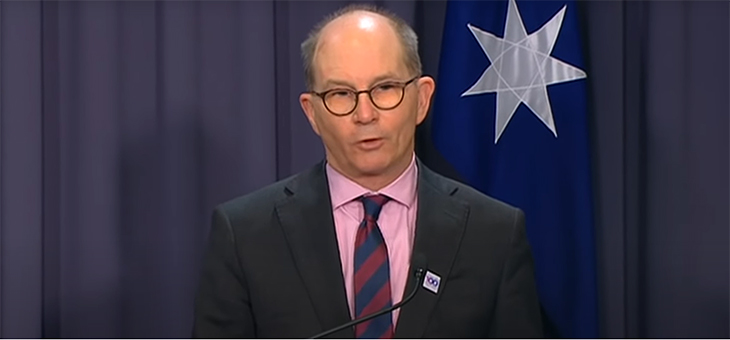It’s still early days, but many health experts seem keen on letting the Omicron variant rip through the Australian community. However, few have any idea about how the mutant variant will affect older Australians.
Estimates on how Omicron will affect the population are largely based on southern African examples, where the variant has the largest known foothold.
So far, Australia has only a few confirmed Omicron cases – seven as of Thursday morning. There are six cases in New South Wales and one at the Northern Territory’s Howard Springs quarantine facility.
Most of the cases are linked to southern African countries but were diagnosed quickly and are in quarantine.
Australia’s chief medical officer Professor Paul Kelly told 7News the next fortnight will be critical for authorities to understand the effects of the variant on the population.
Read: New Omicron variant hits Australian shores
So far, all known cases globally are young, double vaccinated travellers, some who “have had infection previously, either known or on serological testing, and they have very mild or in fact no disease”, says Prof. Kelly.
“We do know it’s transmissible, but we don’t know about the vaccine effectiveness,” he said.
“We have some anecdotal reports that double vaccinated people, as recently as October (have been infected). We don’t know if that’s a universal thing. It’s too early to tell whether they are just by chance or if that’s a real thing.”
Early indicators in South Africa suggest the variant may cause mild symptoms, but Prof. Kelly said it would be irresponsible to rely on samples from other countries, especially when it comes to assessing the effect of Omicron on older people.
“In terms of the severity, South Africa is very different to Australia,” he said.
“Their life expectancy is 65. Only 5 per cent of the population is over the age of 65. They only have 25 per cent vaccine coverage.
“So, it’s going to take time to work out the effect on older people, more people at higher risk of disease.
“Most of the information and detailed information are in young travellers, in their 30s or younger, and we know all of the variants of this virus are less likely to cause severe disease in that age group.”
Read: Return to COVID-normal not so simple for older Aussies
Victoria’s chief health officer Professor Brett Sutton agreed Australia was still in the “very early days of understanding this Variant of Concern, as WHO has designated it”.
He said that evidence suggests Omicron is outrunning the Delta variant in southern Africa, which provides “a strong reason to watch it very closely and urgently understand more”.
“Is it more severe? Again, a lot said but no real indications at all at this stage. We shouldn’t assume it’s very mild, or more severe,” he said.
“Current vaccines are still likely to provide protection, but this is the biggest question to resolve – likely more known in coming weeks.”
Read: Will you be eligible for a COVID booster shot? And when?
While Australia and the rest of the world scramble to get ahead of the mutant variant, Prof. Kelly seems resigned to the fact that it will eventually invade Australia.
“We can’t keep this Omicron variant out forever. Eventually, it will be here,” he said.
“Most importantly now, we do what we can to slow down that introduction and all of the measures that have been introduced will assist with that.”
How do you feel about letting Omicron run freely in Australia? Why not share your thoughts in the comments section below?
If you enjoy our content, don’t keep it to yourself. Share our free eNews with your friends and encourage them to sign up.

